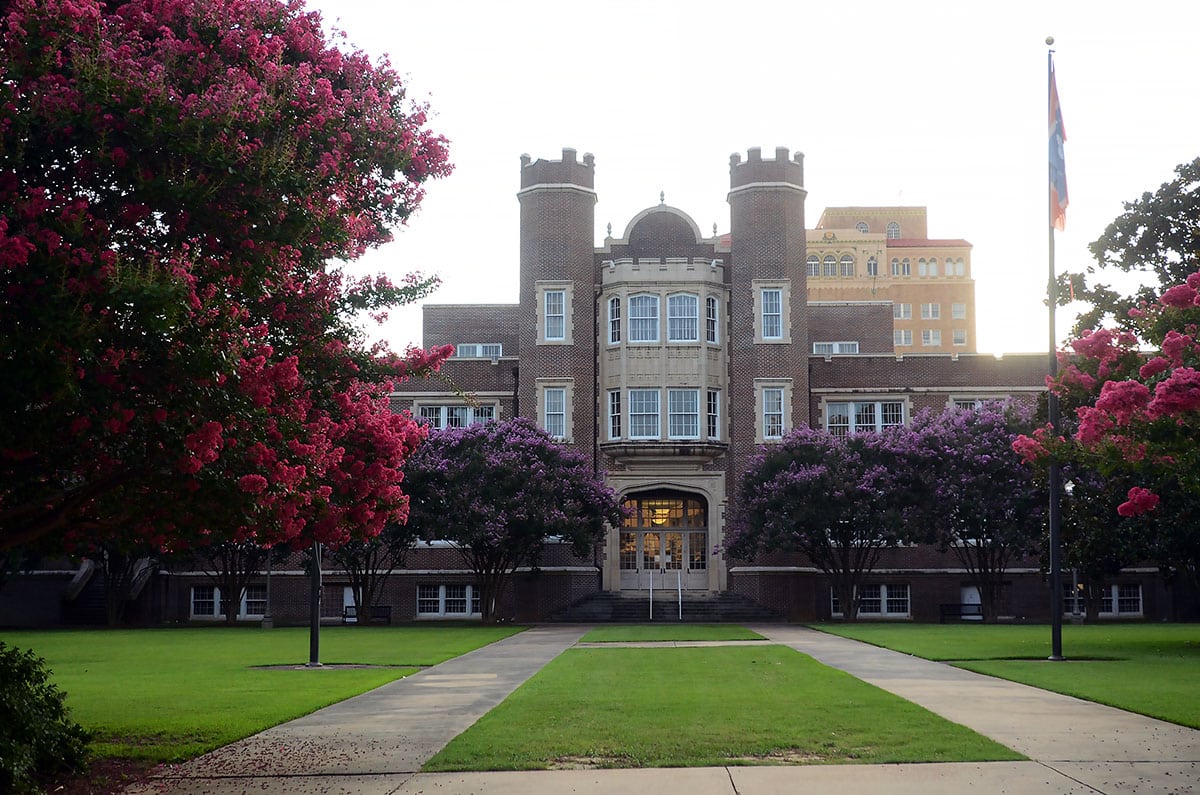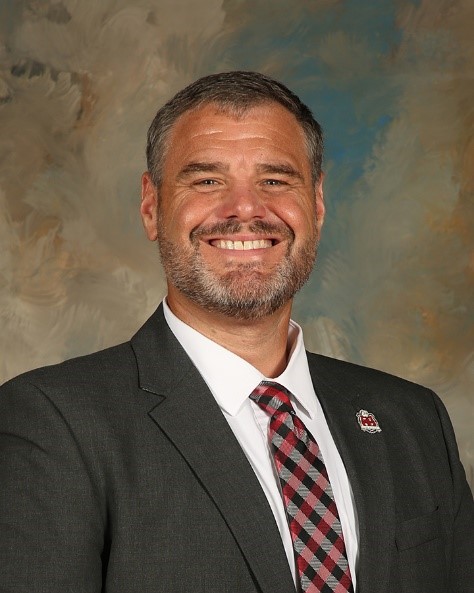Mississippi Today
Lance Evans named new state superintendent of education


The Mississippi State Board of Education has named Mississippi native Lance Evans as the next state superintendent.

Evans, the current superintendent of the New Albany School District, would assume the position in July of 2024 if confirmed by the state Senate.
He will replace Ray Morgigno and Mike Kent, the two interim superintendents who have led the Mississippi Department of Education since the Senate rejection of Robert Taylor. Taylor was selected through a national search process last year to replace outgoing State Superintendent Carey Wright.
READ MORE: Rejected State Supt. Robert Taylor says the situation ‘puts a stain on the state’
Evans’ 24-year career in education spans multiple leadership roles in the New Albany School District, including principal of New Albany High School and Elementary School. He has led the district since 2017, earning an A rating every year since 2019 and implementing a workforce development initiative. Before joining the New Albany School District, he also worked in the Oxford and Itawamba County school districts.
“I am deeply honored and humbled to accept the position of State Superintendent of Mississippi,” he said in a statement. “My commitment to fairness, equity, and innovation in education aligns seamlessly with the values of this great state. I look forward to collaborating with educators, stakeholders, and communities to forge new pathways for our graduates, ensuring every student has the opportunity to thrive and succeed.”
Evans is the 2023 Mississippi Superintendent of the Year and has served on the boards of multiple professional organizations for school administrators. He holds degrees from Itawamba Community College, Mississippi State, the University of Mississippi and Delta State.
At the time of publication, MDE communications said they did not know what Evans’ salary would be. Both Taylor and Wright received a salary of $300,000.
McPherson and Jacobson, a national superintendent search firm based in Nebraska, conducted the search on behalf of the board. The firm also led the search last year which resulted in Taylor’s selection and oversaw this one as an extension of its initial contract. The firm received $51,200 in total for its services.
“Dr. Evans is a visionary leader who is committed to continuously improving student achievement,” said Glen East, board chair. “The Board sought broad public input about the qualities and priorities the next state superintendent of education should have, and Dr. Evans meets all of our expectations.”
This article first appeared on Mississippi Today and is republished here under a Creative Commons license.
Did you miss our previous article…
https://www.biloxinewsevents.com/?p=316482
Mississippi Today
Speaker White wants Christmas tree projects bill included in special legislative session

House Speaker Jason White sent a terse letter to Lt. Gov. Delbert Hosemann on Thursday, saying House leaders are frustrated with Senate leaders refusing to discuss a “Christmas tree” bill spending millions on special projects across the state.
The letter signals the two Republican leaders remain far apart on setting an overall $7 billion state budget. Bickering between the GOP leaders led to a stalemate and lawmakers ending their regular 2025 session without setting a budget. Gov. Tate Reeves plans to call them back into special session before the new budget year starts July 1 to avoid a shutdown, but wants them to have a budget mostly worked out before he does so.
White’s letter to Hosemann, which contains words in all capital letters that are underlined and italicized, said that the House wants to spend cash reserves on projects for state agencies, local communities, universities, colleges, and the Mississippi Department of Transportation.
“We believe the Senate position to NOT fund any local infrastructure projects is unreasonable,” White wrote.
The speaker in his letter noted that he and Hosemann had a meeting with the governor on Tuesday. Reeves, according to the letter, advised the two legislative leaders that if they couldn’t reach an agreement on how to disburse the surplus money, referred to as capital expense money, they should not spend any of it on infrastructure.
A spokesperson for Hosemann said the lieutenant governor has not yet reviewed the letter, and he was out of the office on Thursday working with a state agency.
“He is attending Good Friday services today, and will address any correspondence after the celebration of Easter,” the spokesperson said.
Hosemann has recently said the Legislature should set an austere budget in light of federal spending cuts coming from the Trump administration, and because state lawmakers this year passed a measure to eliminate the state income tax, the source of nearly a third of the state’s operating revenue.
Lawmakers spend capital expense money for multiple purposes, but the bulk of it — typically $200 million to $400 million a year — goes toward local projects, known as the Christmas Tree bill. Lawmakers jockey for a share of the spending for their home districts, in a process that has been called a political spoils system — areas with the most powerful lawmakers often get the largest share, not areas with the most needs. Legislative leaders often use the projects bill as either a carrot or stick to garner votes from rank and file legislators on other issues.
A Mississippi Today investigation last year revealed House Ways and Means Chairman Trey Lamar, a Republican from Sentobia, has steered tens of millions of dollars in Christmas tree spending to his district, including money to rebuild a road that runs by his north Mississippi home, renovate a nearby private country club golf course and to rebuild a tiny cul-de-sac that runs by a home he has in Jackson.
There is little oversight on how these funds are spent, and there is no requirement that lawmakers disburse the money in an equal manner or based on communities’ needs.
In the past, lawmakers borrowed money for Christmas tree bills. But state coffers have been full in recent years largely from federal pandemic aid spending, so the state has been spending its excess cash. White in his letter said the state has “ample funds” for a special projects bill.
“We, in the House, would like to sit down and have an agreement with our Senate counterparts on state agency Capital Expenditure spending AND local projects spending,” White wrote. “It is extremely important to our agencies and local governments. The ball is in your court, and the House awaits your response.”
This article first appeared on Mississippi Today and is republished here under a Creative Commons Attribution-NoDerivatives 4.0 International License.
Mississippi Today
On this day in 1959, students marched for integrated schools

April 18, 1959

About 26,000 students took part in the Youth March for Integrated Schools in Washington, D.C. They heard speeches by Martin Luther King Jr., A. Phillip Randolph and NAACP leader Roy Wilkins.
In advance of the march, false accusations were made that Communists had infiltrated the group. In response, the civil rights leaders put out a statement: “The sponsors of the March have not invited Communists or communist organizations. Nor have they invited members of the Ku Klux Klan or the White Citizens’ Council. We do not want the participation of these groups, nor of individuals or other organizations holding similar views.”
After the march, a delegation of students went to present their demands to President Eisenhower, only to be told by his deputy assistant that “the president is just as anxious as they are to see an America where discrimination does not exist, where equality of opportunity is available to all.”
King praised the students, saying, “In your great movement to organize a march for integrated schools, you have awakened on hundreds of campuses throughout the land a new spirit of social inquiry to the benefit of all Americans.”
This article first appeared on Mississippi Today and is republished here under a Creative Commons Attribution-NoDerivatives 4.0 International License.![]()
Mississippi Today
See how much your Mississippi school district stands to lose in Trump’s federal funding freeze

Mississippi school districts are grappling with the fallout of the Trump administration’s decision to freeze roughly $137 million in federal money and are hoping the U.S. Department of Education will reverse the decision.
Around 70 school districts were relying on the federal Department of Education’s decision under the Biden administration to allow them to spend federal pandemic grant money through next year.
But new U.S. Secretary of Education Linda McMahon notified state and local officials last month that the Trump administration was immediately cutting off the money.
Schools were already spending the money on a range of initiatives, including literacy and mathematics programs, mental health services, construction projects for outdated school facilities, and technology for rural districts.
“We’re really counting on all of our state and federal leaders to understand the predicament that we’re in as local school districts and do whatever it takes to get the federal government to honor this extension,” said Lawrence Hudson, the superintendent of Western Line School District in the Delta.
Hudson told Mississippi Today that his school district had already utilized federal money to renovate the heating and air systems in three old buildings in the district — two former Army barracks and a double-wide trailer — which had inferior ventilation.
The district also planned to use the money to improve ventilation in another building. However, it was unable to complete the project by the original deadline because it needed to take place during the summer break when the kids were not in the building.
Now those plans have been disrupted. Hudson said the district will have to find other money to pay for the project.
Lance Evans, the Mississippi Superintendent of Education, wrote a letter to McMahan saying the federal government failed to provide adequate notice that it would cut off access to money committed to schools during the COVID-19 pandemic, and the action has put school districts like Hudson’s in a bind.
Madi Biedermann, deputy assistant secretary for communications for the federal education department, told Mississippi Today in a statement that the COVID-19 pandemic is over and “school districts can no longer claim they are spending their emergency pandemic funds on ‘COVID relief.’”
“The Department will consider extensions on an individual project-specific basis where it can be demonstrated that funds are being used to directly mitigate the effects of COVID-19 on student learning,” Biedermann said.
Jackson Public School District, one of the largest districts in the state, has approximately $4.5 million in encumbered funds at risk due to the federal government’s decision, according to Earl Burke, the district’s Chief Operations Officer.
Of that amount, JPS had $3.6 million allocated for critical construction projects and just under $1 million designated for instructional support.
“That said, despite our best efforts, it is important to note that some construction projects may not be completed by the start of the school year due to this shift in funding availability,” Burke said.
The funding crunch also comes on the heels of Mississippi legislators voting to end their 2025 session without setting an annual budget.
Mississippi is one of the most federally dependent states in the nation, and the Trump administration, through its Department of Government Efficiency, has made slashing government spending one of its priorities.
Lt. Gov. Delbert Hosemann has said in recent interviews that legislative leaders might consider assisting state agencies that have been affected by federal funding cuts.
Whatever decisions federal and state leaders make, smaller school districts that received the federal money will be impacted.
The Benton County School District, located in rural northeast Mississippi, completed a heating and air conditioning project for one of its buildings, according to Superintendent Regina Biggers. The district paid for the project but was banking on the federal government reimbursing it around $166,000, something that may not now happen.
“This was a tremendous amount of money for a district our size,” Biggers said.
This article first appeared on Mississippi Today and is republished here under a Creative Commons Attribution-NoDerivatives 4.0 International License.![]()
-

 News from the South - Arkansas News Feed7 days ago
News from the South - Arkansas News Feed7 days agoMeasles cases confirmed in Arkansas children after travel exposure
-

 Mississippi Today7 days ago
Mississippi Today7 days agoA self-proclaimed ‘loose electron’ journeys through Jackson’s political class
-

 News from the South - Alabama News Feed7 days ago
News from the South - Alabama News Feed7 days agoImpacts of Overdraft Fees | April 11, 2025 | News 19 at 10 p.m.
-

 Mississippi Today5 days ago
Mississippi Today5 days agoOn this day in 1873, La. courthouse scene of racial carnage
-

 News from the South - Georgia News Feed7 days ago
News from the South - Georgia News Feed7 days ago1-on-1 with Gov. Kemp’s Senior Advisor | Full interview
-

 News from the South - Missouri News Feed7 days ago
News from the South - Missouri News Feed7 days agoMom and son targeted in carjackings, stolen cars crime spree
-

 Local News6 days ago
Local News6 days agoAG Fitch and Children’s Advocacy Centers of Mississippi Announce Statewide Protocol for Child Abuse Response
-

 Local News5 days ago
Local News5 days agoSouthern Miss Professor Inducted into U.S. Hydrographer Hall of Fame












































